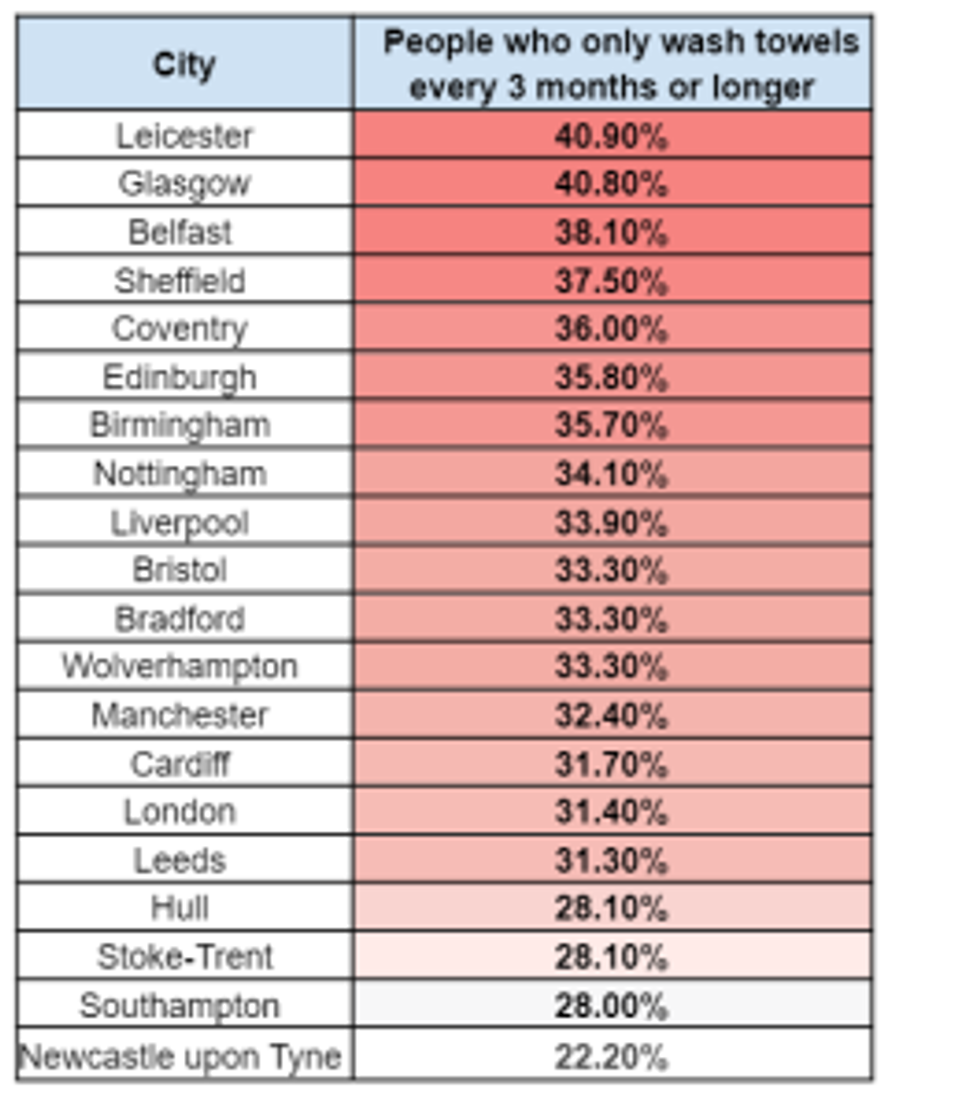Only 5 per cent of people surveyed said they wash their towels every single day
Health experts suggest that bathroom towels should be washed after three uses to prevent spread of germs, but many Brits are not adhering to this basic bathroom hygiene.
Shower and bathroom specialist Showers to You surveyed 2,200 UK residents and found that three per cent of respondents wash their bathroom towels once a year, which equates to over 1.5 million people based on the latest adult population estimates from the Office of National Statistics.
Men were more likely to use their towels for longer without washing than women, with five per cent of male respondents admitting to giving them an annual wash, compared to one per cent of women.
Eight per cent of respondents stated they only wash their bathroom towels twice a year, while 33 respondents admitted washing their bathroom towels just once every three months at the most.
Thirty-eight per cent of UK residents surveyed wash their towels once a month, 24 per cent once a week, and only five percent respondents said they wash their towels every single day.
Residents of Leicester and Glasgow are most likely to go the longest without washing their bathroom towels, with over 40 per cent respondents from both cities admitting to only washing their towels every three months at the most.
Martin Smith, the founder of Showers to You commented: “The bathroom should in theory be one of the cleanest rooms in the home, however our research shows that many people across the country could be ignoring a key step in ensuring proper bathroom hygiene.
“While it’s encouraging to see the data shows the majority of respondents are keeping up with regularly washing their bathroom towels, everyone should ensure they are ensuring a regular routine of washing their towels in line with guidance from health professionals, especially for those who only give their towels an annual wash.”
Respondents cited visual cleanliness as the most common reason for washing their bathroom towels (67 per cent), followed by smell (61 per cent) and ‘number of uses’ (58 per cent).
Concerningly, one in six respondents (15 per cent) said they will only wash their towels once they have become stiff.
Despite the National Health Service (NHS) cautioning that towels can spread germs if not washed frequently, 11 per cent of respondents aren’t concerned at all by bacteria or hygiene issues stemming from not washing their bathroom towels.
It is important to wash of bathroom towels regularly to maintain cleanliness and reduce the risk of infections.
Dr. Hamdan Abdullah Hamed MBChB, a board-certified Dermatologist and Co-founder of PowerYourCurls.com, explained: “Towels tend to accumulate moisture, creating an environment conducive to bacterial and fungal growth.”
“Bacteria like staphylococcus aureus can lead to skin infections, while fungi like Candida yeast can cause issues like athlete's foot or yeast infections. Additionally, dirty towels may contain allergens that can trigger allergic reactions or skin irritations in sensitive individuals.
“Therefore, it is recommended to wash towels after every three to four uses to eliminate bacteria, dirt, dead skin cells, and allergens, ensuring optimal hygiene and minimising health risks,” he added.
Cities where you can find the maximum number of dirty towels:














